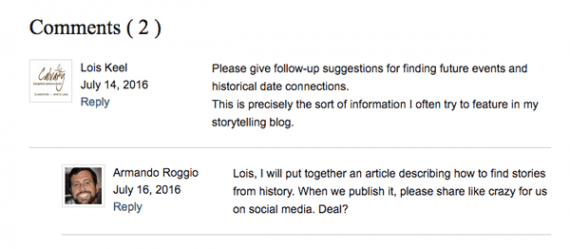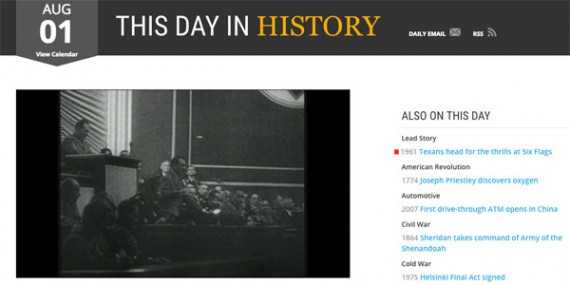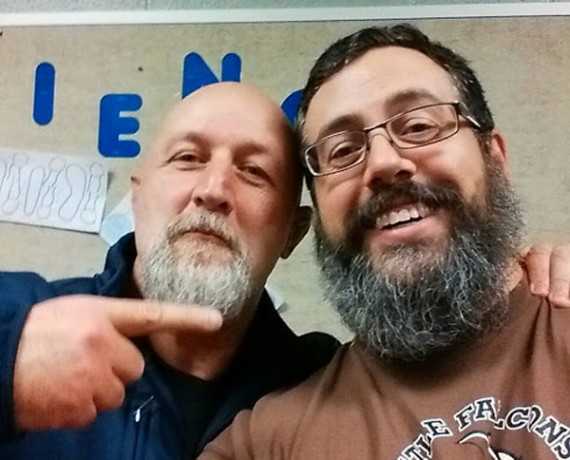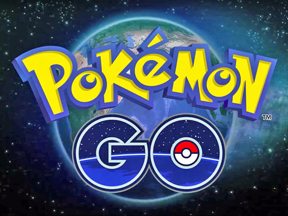
MTV turns 35 in August 2016.
Stories are engaging. People love listening to a well-told tale. Just ask anyone who has ever binged watched a series on Netflix, Hulu, or the History channel. For content marketers, history (ancient and modern) provides an unending supply of stories.
Engagement is an important part of content marketing. In fact, content marketing can be described as the act of producing and publishing content with the express aim of attracting, engaging, and retaining customers. Storytelling can certainly achieve this end.
Stories Build Relationships
The marketing theory goes like this.
- A content marketer retells an interesting story and relates that story to a lifestyle, a brand, or even a product, so that the business is understood to be the storyteller or story provider.
- A reader (or viewer) enjoys engaging with the story and begins to trust and respect storyteller (the business).
- When the reader needs to purchase a product or recommend a business to a friend, the reader chooses a business he trusts and respects.
Ultimately, this is an exchange for mutual benefit: A business offers useful, entertaining history-based (in this example) content and, in exchange, the reader shows a preference for the business.
Mining History for Story Ideas
Since May 2014, I have been writing a monthly article offering five content marketing ideas. Often this series recommends content around historical events.
The most recent post in the series, “5 Content Marketing Ideas for August 2016,” included a section focused on history.
“History has a lot of lessons to teach us, stories to tell us, and experiences to share with us,” I wrote. “This makes history an almost unending source of content marketing inspiration. What’s more, it can be quite specific to a particular industry.”
In response to this content suggestion, Lois Keel, a reader, commented, “please give follow-up suggestions for finding future events and historical date connections. This is precisely the sort of information I often try to feature in my storytelling blog.”

Lois Keel, a reader, asked how to find stories from history.
Thus, here are some recommendations for discovering or mining content ideas from the past.
1. Use ‘This Day in History’ Services
The history section mentioned above included a list of seven historical events and anniversaries in August.
- MTV turns 35. The music channel first broadcast on August 1, 1981.
- The Declaration of Independence was signed on August 2, 1776.
- The National Basketball Association was created on August 3, 1949.
- Jesse Owens won a gold medal in the long jump at the Berlin Olympics on August 4, 1936.
- Illusionist Harry Houdini stays submerged in a swimming pool for an hour and a half in one of his most famous tricks on August 5, 1926.
- The fantasy novel, A Game of Thrones, was released on August 6, 1996.
- The Explorer 6 spacecraft took the first photo of Earth on August 7, 1959.
I found each of these historical connections using “This Day in History” sites or lists. Of these, the History channel has the best offering, in my view. It lists several historical events for each day of the year. There is a video describing some of the most important events of the day.

The History channel’s “This Day in History” section is a good source of story ideas.
Here is a list of “This Day in History” sites to check out.
- The History channel
- Infoplease: This Day in History
- The New York Times blog: On This Day
- The Boston Globe: This Day in History
- HistoryNet: This Day in History
- Computer History Museum: This Day in History
- Wikipedia: List of Historical Anniversaries
These sites can help discover events related to a specific date. But your business must understand the events and tell stories about them in a way to is meaningful to your audience.
2. Read Industry News, Popular Press
Current events often have their roots in history. Content marketers looking for stories about what came before may find those tales when they read about what is going on now.
This can be especially salient when those stories are related to a specific industry or lifestyle.
Pick a handful of good publications related to your industry, and follow them. As you do, ask about the origin of the story.
Here’s an example. Imagine you run an online store that sells environmentally friendly, organic products.
Your customers want to live a particular lifestyle and your products help. As part of your reading regime, you notice an article about the future of solar power published on Mother Earth News. The post starts you thinking about the history of solar energy. You search and find Frank Shuman, a solar energy pioneer.

The world’s first solar power station was built in Egypt between 1912 and 1913.
In 1908, Shuman formed the Sun Power Company and just a few years later built a solar power station in Maadi, Egypt. With a bit of research, you could write an article about Shuman and relate it to modern solar power. Even if you don’t specifically sell solar power equipment, your customers and prospects are likely interested in the lifestyle.
3. Use Personal Experience, Interactions
In the fall of 2015, I had the opportunity to listen to a presentation from Dan Russell, a four-time Oregon high school wrestling champion and a four-time NCAA Division II national champion. He is also an author and a pastor.

The author with Dan Russell in 2015.
During the presentation, Dan Russell told us the story of his brother, Joe Russell.
In 1985, Joe Russell was one of the most outstanding high school wrestlers in the United States. As good as Dan was, Joe was better. On the way to practice one day, Joe was in a horrible motorcycle accident that left him partly paralyzed.
It would be a tragic story if it ended in 1985. But it did not. After months of recovery, Joe was able to return to school. He wanted to wrestle again, but he could hardly walk. The boys’ coach allowed Joe to use the mat room, and Joe literally crawled laps around the room to grow stronger.
Eventually, he was able to wrestle again. He was no longer a great champion. In fact, Joe wrestled as the least of the junior varsity athletes, never winning a match.
Joe attended college at the University of Minnesota. The coach there didn’t want to let Joe try wrestling. But Joe loved the sport so much he got permission to practice with the team, even though he was told he would never have the opportunity to compete. Through hard work, he earned the team’s respect and was allowed to compete a handful of times. He never won. In fact, after the accident he never won another match.
After college, Joe Russell joined the coaching staff at University of Minnesota, and eventually went on to be the head wrestling coach at George Mason University. Joe Russell, it turned out, loved wrestling more than he loved winning.
The story can be extremely moving when the details are filled in. In fact, I shared it with a group of parents and wrestlers about two weeks after Dan Russell’s presentation. Nearly everyone in the room was in tears by the end.
The story is engaging. A business that sells wrestling products or that sells tools for high school coaches could tell Joe Russell’s story or offer suggestions for how coaches might employ the story to inspire athletes.
Many content marketers encounter these common histories in their personal lives. When it is appropriate, those stories can make for good content.




